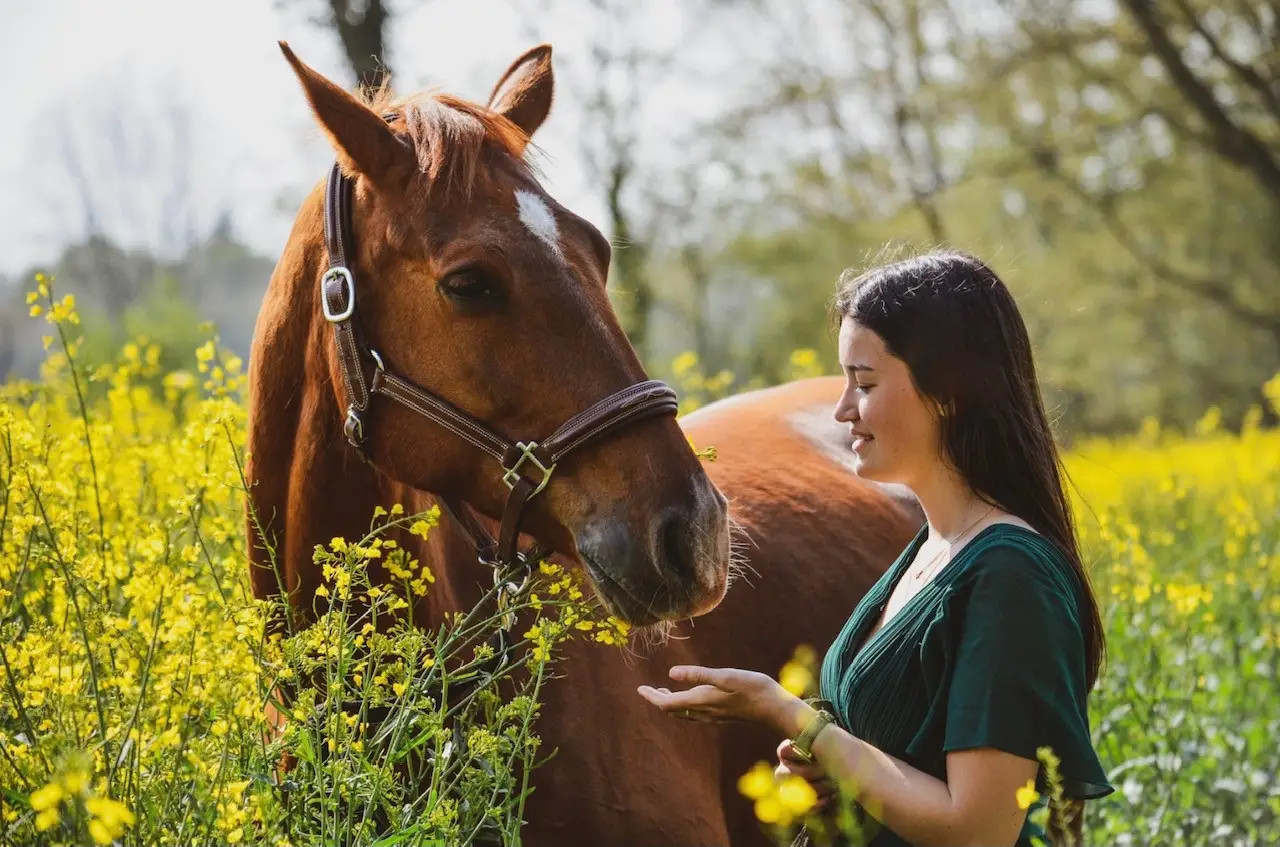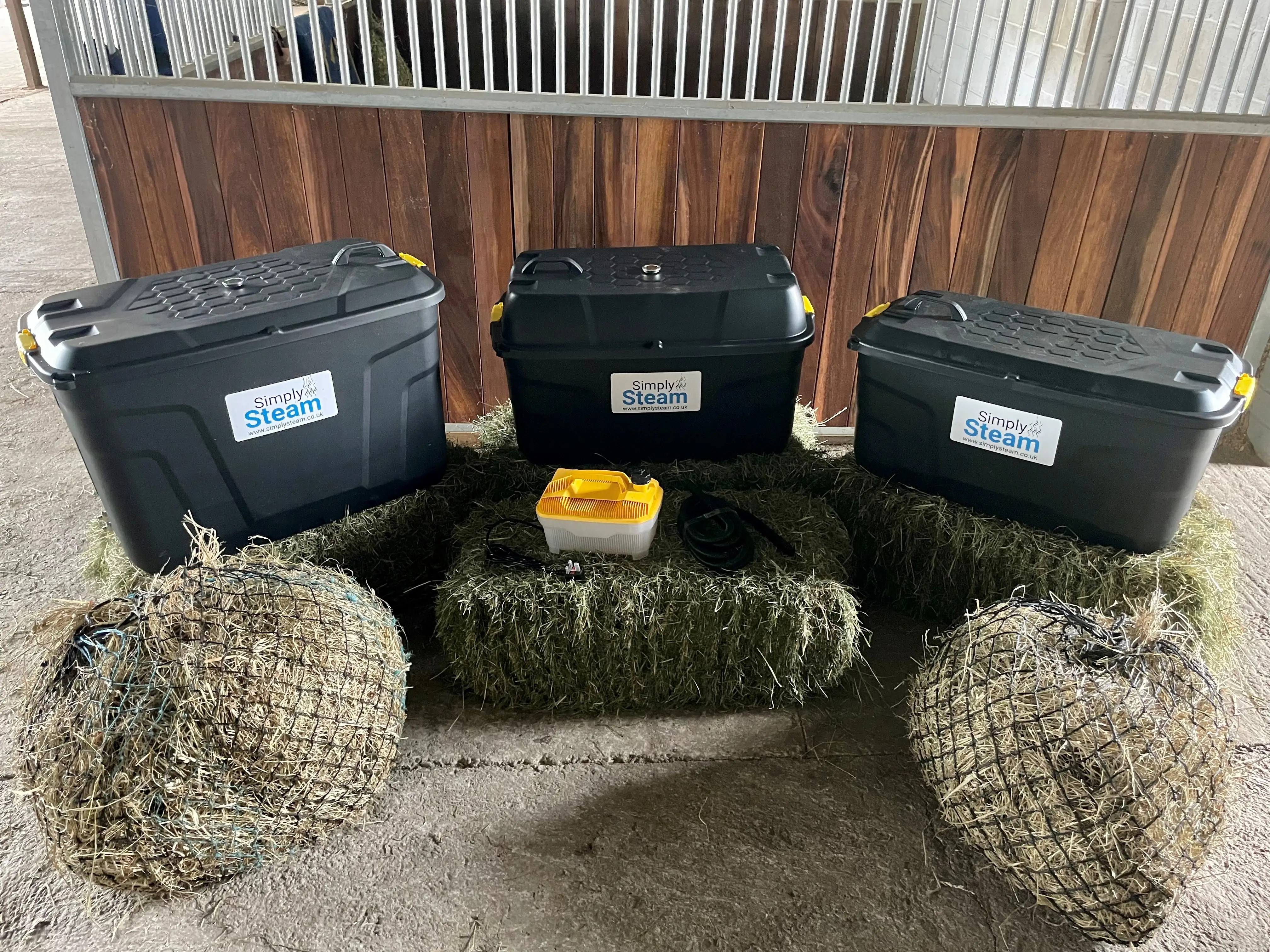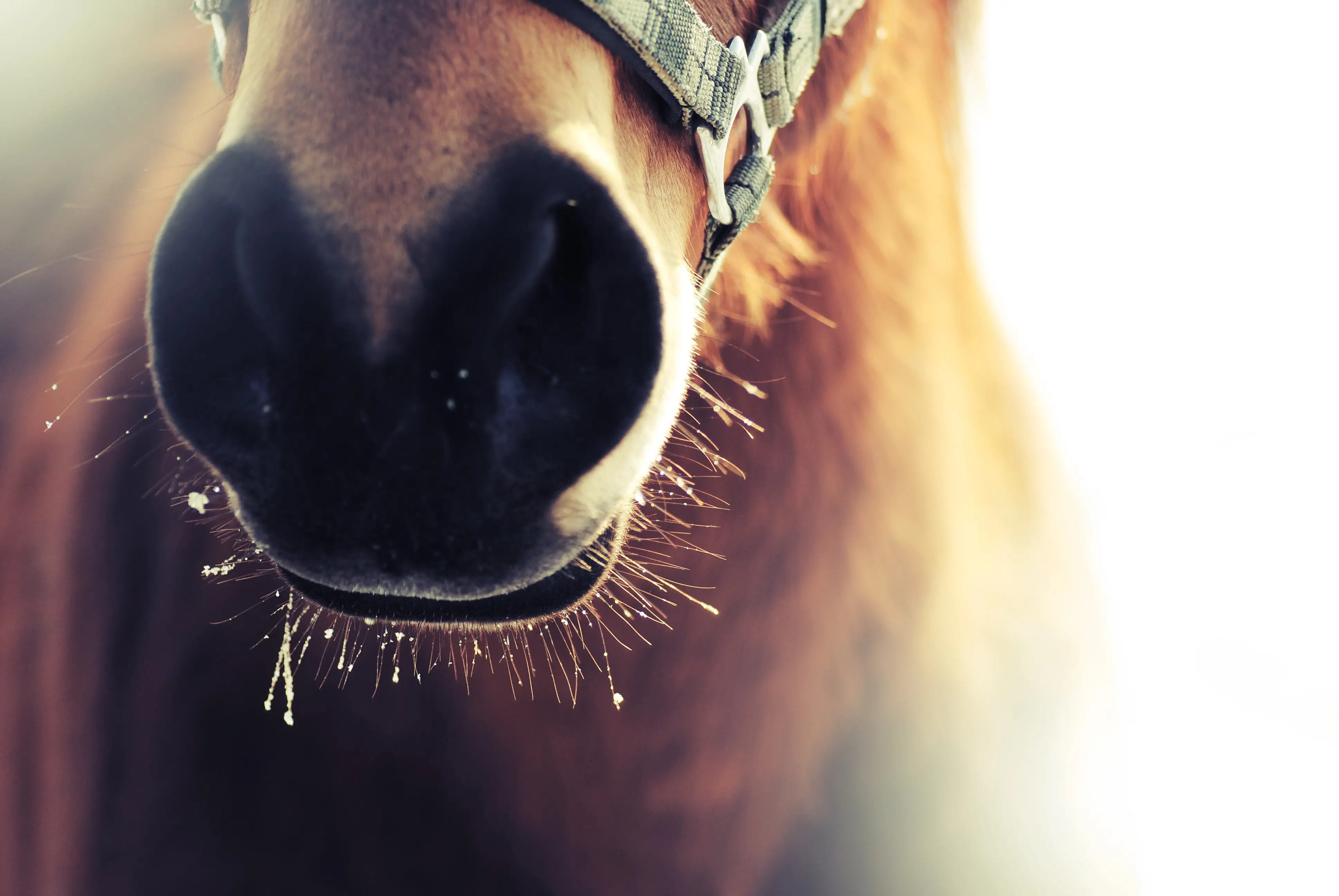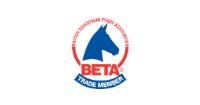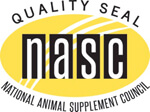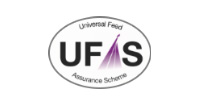24 June
Eye problems in Horses (Uveitis)
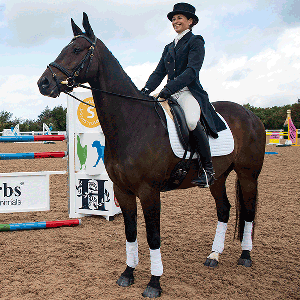 Kate Jupp
Kate Jupp
Kate Jupp
Kate Jupp
What is Uveitis?
Uveitis is a fairly common condition in horses that refers to a painful inflammation of the uvea one of the layers in the eye. It creates a spasm or cramp of the internal muscles that pull the horse’s pupil into a slit. It is the most common cause of blindness in the horse worldwide. When a horse suffers two or more episodes then it is termed recurrent uveitis (moon-blindness). The Uvea contains most of the blood supply to the eye and contains 3 structures, the iris, the ciliary body and the choroid (see Fig 1).
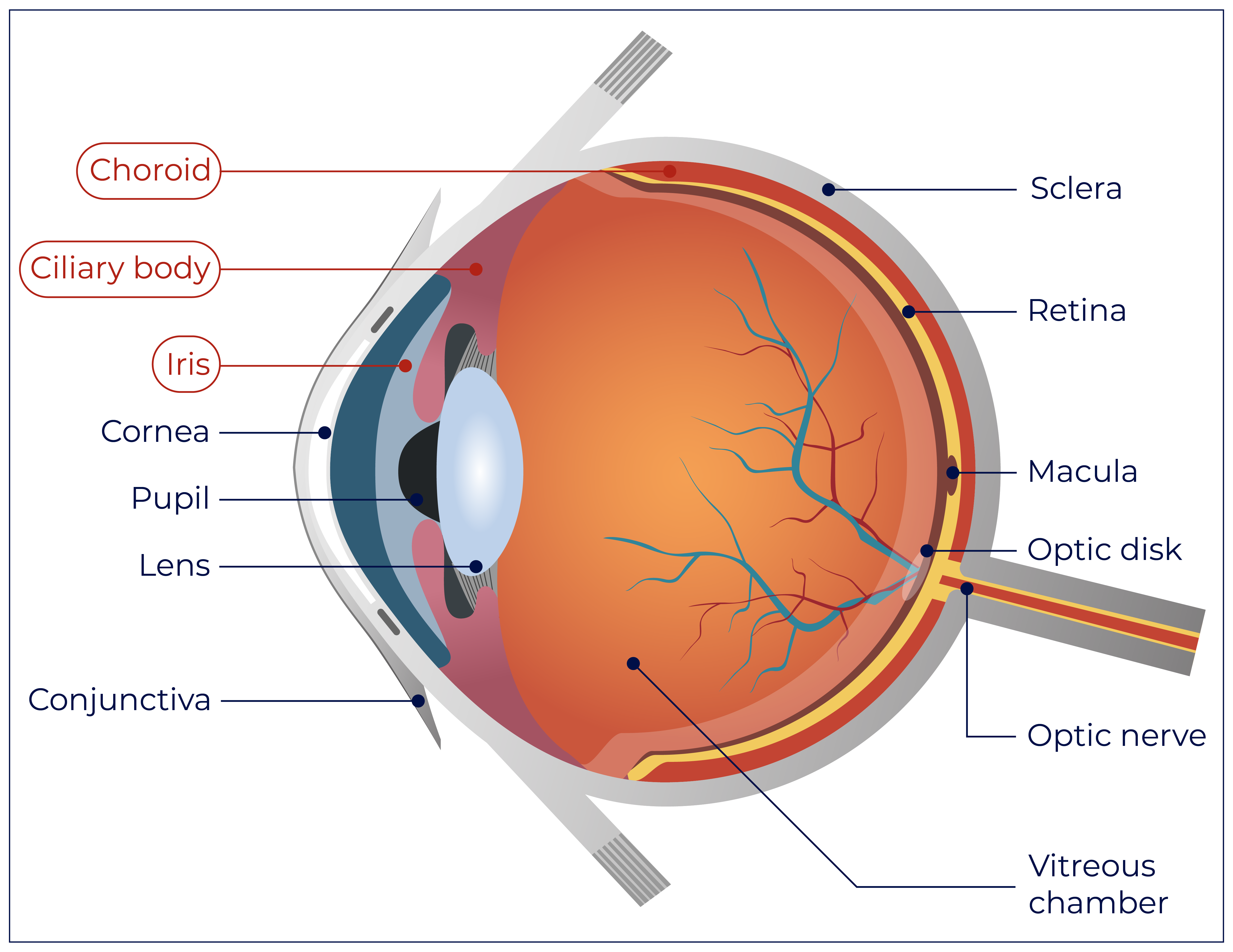
What are the Signs my horse has uveitis?
Early signs can be relatively subtle and include:
- Tearing
- Squinting
- Cloudiness
If left and the condition progresses signs that become more obvious include:
- Swollen eyelids
- Sensitivity to light (closed or partially closed eye)
- Ocular discharge
- Closed pupil (miosis)
- A milky appearance to the inside of the eye (aqueous flare)
- Blood, pus or fibrin inside the eye.
Uveitis can be either posterior or anterior, depending on which structure of the uvea is affected. When both are affected at the same time it is termed panuveitis.
Signs of acute anterior uveitis:
- Chemosis (infection of the blood vessels around the eye)
- Miosis (closed pupil)
- Aqueous flare
- A green-yellowish appearance of the iris
- Blood, pus or fibrin in the eye
Signs of posterior uveitis: tend to be more subtle and often become chronic before diagnosis. Signs include:
When uveitis becomes chronic and recurs at regular intervals it is known as equine recurrent uveitis (ERU). This is fairly uncommon in the UK. With every new flair up more damage is done to the eye.
Any concern with an Eye should ALWAYS involve a visit from your Veterinary.
What are the consequences of uveitis?
Long-term consequences are:
- Damage to the iris
- Cataracts
- Glaucoma
- Retinal detachment
- Blindness
A study in the USA revealed that 30% of horses with uveitis had to be retired due to the condition, a further 30% of horses worked at a lower level and 15% of horses had to be euthanised due to chronic pain.
How can Uveitis be treated?
If you suspect any issue with your horse’s eye(s), a vet should be contacted urgently. In cases of Uveitis rapid, aggressive treatment is required to reduce the possibility of the horse losing sight in the eye and to help with the pain.
A treatment plan tends to involve:
- Steroids – to reduce inflammation and pain often in the form of eye drops
- NSAID’s – for pain relief and to reduce the spasms in the eye that causes the pupil to constrict
- Atropine – a drug that opens the pupil (relieves pain and reduced the risk of secondary complications)
Other treatment options include:
- Surgery – to remove the vitreous fluid from behind the lens
- Implants – of the immunosuppressive medication cyclosporine – useful if a horse will not take topical drops
- An injection of gentamycin or other medication directly into the eye
- In severe cases then removal of the eye is the best option and even in older horses they can go on to return to full work.
What causes Uveitis and can I prevent it?
The causes of Uveitis can be either as simple as a blunt trauma in an isolated episode or complex in the case of recurrent uveitis where studies have now determined the disease is related to a stimulation of the horse’s immune system.
Infection in particular leptospirosis can also be a cause. Leptospirosis is caused by a bacteria from the spirochete family. Recent studies have also indicated another spirochete - the Borrelia burgdorferi in cases of uveitis. The Borrelia burgdorferi spirochete is responsible for Lymes disease in horses, a growing cause of disease in horses that is spread by infected ticks.
Where there is no obvious cause and the cause may be autoimmune it is very hard to protect the horse from this. Protecting from UV light with the use of fly masks can help. You can also now buy sunglasses for your horse!
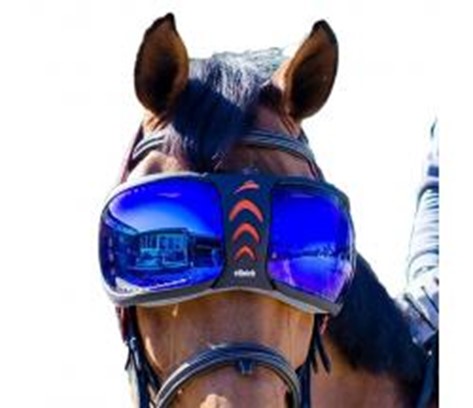 Evysorequine goggles
Evysorequine goggles
There is also a genetic disposition with appaloosa pure and part breeds seeming to be particularly susceptible to the disease. There is a genetic test available to determine if your horse is at risk of developing uveitis.
Early intervention from a veterinary if your horse shows any signs of a painful eye can be key to recovery and reduce the risk of further recurrence.
Our product suggestions:
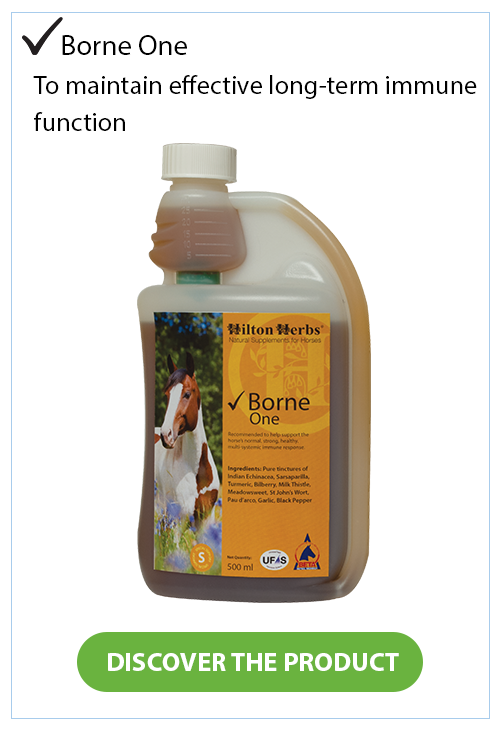
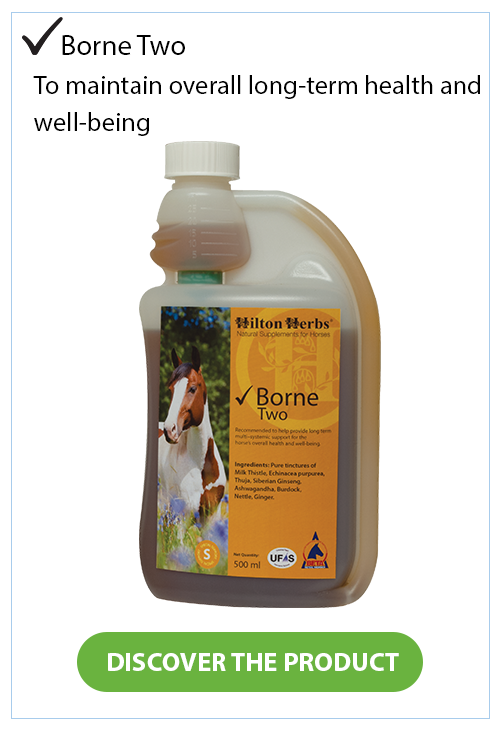
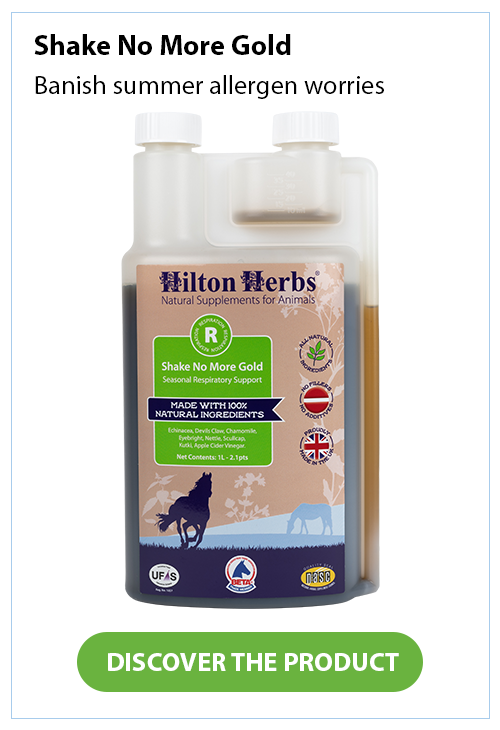
References:
1.https://www.veterinaryvision.co.uk/veterinary-professionals/equine/eru#:~:text=Uveitis%20is%20an%20inflammation%20of,horse's%20pupil%20into%20a%20slit.
2.https://www.horseandhound.co.uk/horse-care/vet-advice/equine-recurrent-uveitis-moon-blindness-57310
3.https://www.liverpool.ac.uk/equine/common-conditions/uveitis/
4.https://www.petmd.com/horse/conditions/eyes/uveitis-horses
5.https://www.equick.it/evysor
6.https://www.vet.cornell.edu/animal-health-diagnostic-center/testing/protocols/lyme-multiplex-horses
7.https://pubmed.ncbi.nlm.nih.gov/22360730/
8.https://www.ncbi.nlm.nih.gov/pmc/articles/PMC8875353/
9.https://pubmed.ncbi.nlm.nih.gov/32862516/
 About Kate Jupp
Kate Jupp
About Kate Jupp
Kate Jupp



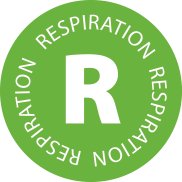


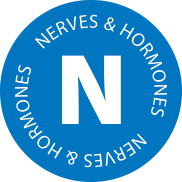






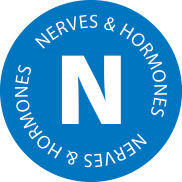
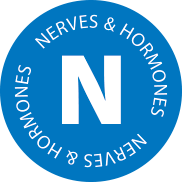
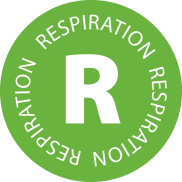
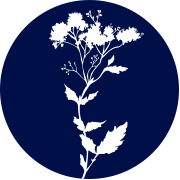
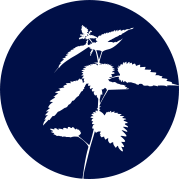



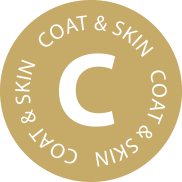



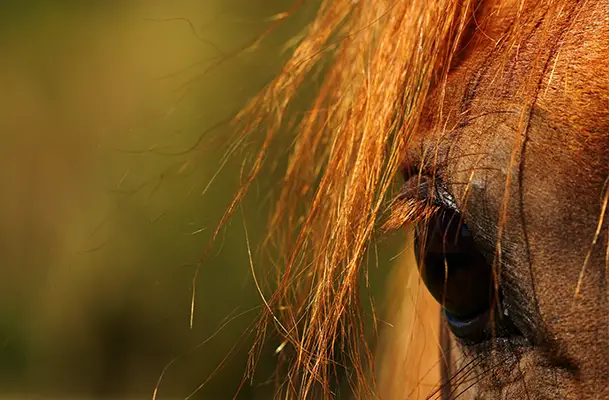

 Evysorequine goggles
Evysorequine goggles


